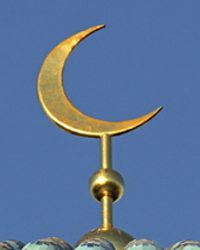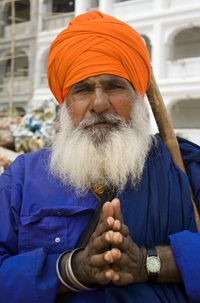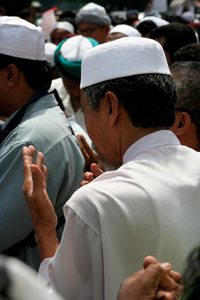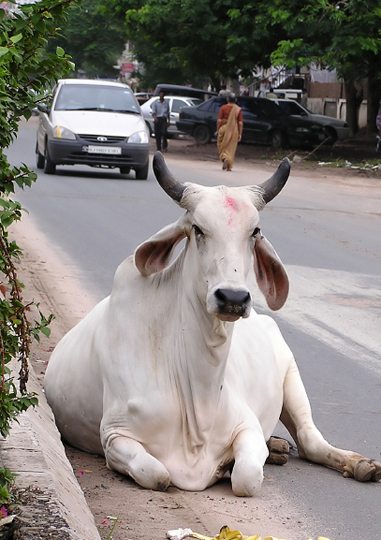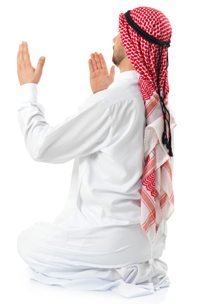 How derived: Childhood Past Life Memories
How derived: Childhood Past Life Memories
Researchers: Ian Stevenson, MD and Francis Story
From: Cases of the Reincarnation Type, Volume II, Ten Cases in Sri Lanka
Article by: Walter Semkiw, MD
MG Wijanama Kithsiri was born on August 28, 1959 in the Sri Lankan village of Wehigala, which at the time was inhabited by about 1000 people. His father was WMG Ariyawansa and his mother was MJ Kusumawathie. The family was Buddhist and Sinhalese, which is the native ethnic group in Sri Lanka that makes up 75 percent of the population. They spoke the Sinhalese language. All people living in Wehigala were Sinhalese Buddhists, with no Muslims or Tamils living in the area. The family was vegetarian.
Nocturnal Episodes of Xenoglossy: Speaking an Unlearned Language
At the age of three Wijanama began sitting up in bed in the middle of the night with his legs crossed and would speak in a language unknown to his parents. On a typical evening, Wijanama would go to sleep along with the rest of the family at 9 PM. In between 10 PM and midnight, he would sit up and begin a recitation of verses in an unknown language. This would last 3 to 15 minutes after which he would lie down and go back to sleep. Sometimes he would get up and try to leave the house, though his family would stop him from departing. His parents noted that Wijanama seemed distressed during these episodes, which continued on a nightly basis to at least until the age of 13, at which time the practice was still continuing to occur.
Past Life Memories of an Incarnation in Kandy
At the age of four Wijanama started talking about a past lifetime in which he stated that he lived in the city of Kandy. Kandy is in the highlands of Sri Lanka about 25 kilometers or 15 miles from Wijanama’s village of Wehigala. He said that he had another father and mother, that they would eat sitting on a mat and that his mother would wear a covering on her head. He also stated that at his past life home, there were plenty of light bulbs, which was an unusual statement as the family’s village of Wehigala had no electricity. In contrast, Kandy was electrified. He also said that water came from a pipe near their kitchen, which could be true for Kandy which had a piped water system, whereas in Wehigala water could only be obtained from wells. Wijanama also said that he had seen moving pictures or movies, which did not exist in his rural village but were available in Kandy.
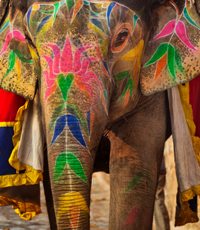 Ian Stevenson explained that Kandy is a fairly large city with a diverse population which includes Buddhists, Tamil Hindus and Muslims. The Tamil people are another ethnic group in Sri Lanka who speak their own language, Tamil. Tamils at the time made up about 20 percent of the Sri Lankan population. Muslims in Kandy also speak the Tamil language.
Ian Stevenson explained that Kandy is a fairly large city with a diverse population which includes Buddhists, Tamil Hindus and Muslims. The Tamil people are another ethnic group in Sri Lanka who speak their own language, Tamil. Tamils at the time made up about 20 percent of the Sri Lankan population. Muslims in Kandy also speak the Tamil language.
Wijanama expressed a strong desire to see his previous parents. Wijanama said that he developed a fever and died while still a schoolboy, though he could not remember his name in this prior incarnation. He said that he attained the third grade in Kandy.
Wijanama claimed that he had seen the Perahara, which is a religious festival that involves elaborate parades and decorated elephants. His village did not have this festival but in Kandy the parade passes along King Street. Wijanama correctly stated that at the Perahara there were huge elephants and a lot of dances.
Wijanama describes a Muslim Past Life
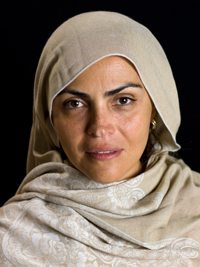 Wijanama made several statements indicating that he was Muslim in his previous life. When Wijanama saw a woman with a hijab or headscarf on her head, which is typically worn by Muslim women, he said, “My mother is like that.” Ian Stevenson noted that Wijanama’s recitation posture of sitting with legs crossed is a position often taken by Muslims during prayers.
Wijanama made several statements indicating that he was Muslim in his previous life. When Wijanama saw a woman with a hijab or headscarf on her head, which is typically worn by Muslim women, he said, “My mother is like that.” Ian Stevenson noted that Wijanama’s recitation posture of sitting with legs crossed is a position often taken by Muslims during prayers.
He also said that he ate meat in his previous life, though he would not eat pork. This is a common Muslim dietary practice, but contrary to the habits of his biologic family, who were vegetarians. Wijanama expressed disappointment in his current living situation as he related that his past life family was much better off than his contemporary one. Once he became angry, stating, “In my other house there is plenty of sugar and I want to go there.” Wijanama also said there was ample meat.
Another Muslim habit that Wijanama displayed was keeping his head covered with a handkerchief fastened with a knot in the back. In addition, he would wear his sarong, which is a type of robe, much further up on the leg, which Muslims do so that they can wash their feet upon entering a mosque. Further, while his family ate their meals seated at a table, Wijanama would sit on the floor cross-legged and after his meal, he would rub his stomach and belch. Ian Stevenson related these dining behaviors are typical of Muslims in the area.
Wijanama repeatedly would say that he wanted to go back to his better past life house and to worship at the mosque. His past life memories appeared to be vivid and he talked about his prior incarnation in the present tense, as if he was still living that lifetime.
Identifying with his Muslim Past Life, Wijanama is Critical of Buddhist Worship
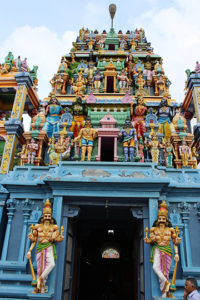 Wijanama was totally resistant to his family’s Buddhist religious customs and he felt repelled by images at Buddhist temples. He stated, “Where we worship we don’t have all these idols and statues. We have to put mats on the ground. We wash our bodies and sit on our mats and worship. There is a priest shouting at the top of his voice. No women go there.” He also said that there was a well with water at his place of worship. Wijanama made these statements before he had ever seen a mosque.
Wijanama was totally resistant to his family’s Buddhist religious customs and he felt repelled by images at Buddhist temples. He stated, “Where we worship we don’t have all these idols and statues. We have to put mats on the ground. We wash our bodies and sit on our mats and worship. There is a priest shouting at the top of his voice. No women go there.” He also said that there was a well with water at his place of worship. Wijanama made these statements before he had ever seen a mosque.
Wijanama’s description of his place of worship does correspond to a Muslim mosque, in which depictions of religious or other figures are not allowed, where worshipers wash their feet in a pool of water before entering and people sit on mats on the floor. The “priest shouting at the top of his voice” would represent a muezzin, who calls the Muslim community to prayers, oftentimes using an amplified sound system.
Wijanama is Ridiculed and called “The Muslim”
As he lived in a community made up entirely of Sinhalese Buddhists, Wijanama experienced ridicule from schoolmates because of his Muslim behavior. They would tease him and they gave him a nickname, “The Muslim.” Wijanama would respond by running home and asking that he be sent to his past life father. Nonetheless, he would continue to insist that he had been a Muslim in his past life and that he still was a Muslim.
Shopkeeper: A Probable Past Life Vocation
Wijanama routinely played at running a boutique or shop, which he would open as soon as he came home from school. He used red seed pods to represent slices of meat and pieces of paper to represent fabrics. He would pretend to sell vegetables and toys. In dreams, he said he saw his past life father bringing vegetables to the shop in a cart. Wijanama indicated that when he grew up, he would acquire a shop or boutique.
Children with past life memories often duplicate their past life profession in their play. A dramatic example involves the reincarnation case of Ahmet Delibalta | Erkan Kilic, in which Erkan, as a child, would pretend to run a nightclub, which was his past life vocation as Ahmet Delibalta. To learn more, go to:
Reincarnation Case of Ahmet Delibalta | Erkan Kilic
Sometimes his father would joke that it was a lot of trouble to have a Muslim come into the family. To this, Wijanama angrily replied, “Aren’t we all humans? Don’t say such things about others!”
Wijanama finds his Past Life Mosque in Kandy
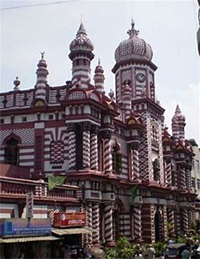 When Wijanama was five years old his family took him to Kandy to see the Buddhist Temple of the Tooth, a landmark of the area. From there, Wijanama started to pull his mother down King Street saying that he wanted to go to the place where he worshipped. When they arrived at the King Street Mosque, Wijanama said, “This is where we worshiped.” Wijanama noted that the stairs of the mosque had been changed. This assertion was verified by an official at the mosque.
When Wijanama was five years old his family took him to Kandy to see the Buddhist Temple of the Tooth, a landmark of the area. From there, Wijanama started to pull his mother down King Street saying that he wanted to go to the place where he worshipped. When they arrived at the King Street Mosque, Wijanama said, “This is where we worshiped.” Wijanama noted that the stairs of the mosque had been changed. This assertion was verified by an official at the mosque.
Near the King Street Mosque Wijanama saw a house and dragged his father to it. They did not knock on the door as Wijanama’s father was afraid of discussing reincarnation in this Muslim community, since reincarnation traditionally is not part of Islamic doctrine. In this area, Wijanama found the faucet of a water pipe and he stated, “We washed and bathed there.”
Xenoglossy: Wijanama’s Recitation is Deciphered
When Ian Stevenson researched this case, a tape recording was made of Wijanama’s nighttime recitation. In this recording, four words were repeated over and over. These words were:
“Allaha,” which is the Arabic word for God
“Umma,” which is the Tamil word for mother
“Vappa,” which is the Tamil word for father
Stevenson noted that Umma and Vappa are part of the vocabulary of the Tamil dialect spoken by Muslims in Kandy. Further, when Stevenson had a Muslim resident of Kandy listen to the tape recording, this individual stated that only a Muslim child could pronounce these words so properly. Stevenson interpreted the recitation as a prayer to God in which Wijanama pleaded to be reunited with this past life parents.
There were other words that Wijanama used which would indicate that he had lived in Kandy in his previous live. For example, when asked if he had enough food, Wijanama replied “podong,” which is a Tamil word for “enough.” This is in contrast to the Sinhalese word for enough, which is “aithie.”
In 1970, when Wijanama was 11 years old, he was still persisting in the behavior of a Muslim boy and he continued to play at operating his shop after school. His nocturnal ritual of sitting up on his bed and pleading to God and referring to his past life mother and father was ongoing.
Statements made by Wiljanama strongly support that he had a past life as a Muslim in Kandy. As noted, he could not recall his past life name, which made locating his past life family challenging. Further, Ian Stevenson noted that Muslims in Kandy were reluctant to help in identifying Wijanama’s past life identity, since reincarnation is not a part of their religion.
 Principles of Reincarnation-Understanding Past Lives
Principles of Reincarnation-Understanding Past Lives
Change of Religion and Ethnicity: Wijanama recalled that he was a Muslim boy in his past life, whereas in his contemporary life, he was born into a Sinhalese Buddhist family.
Past Life Talents and Behaviors: Wijanama demonstrated behaviors typical of a Muslim boy. Further, he had an obsession of playing the role of a shopkeeper, which likely represents his past life vocation.
Xenoglossy: In Wijanama’s nightly recitations, he used Arabic and Tamil words, though no Arabs or Tamils lived in his village and no one in his family knew or understood these words. Being able to speak a language that has not been learned by normal means is called xenoglossy. The Arabic and Tamil words that Wijanama used likely were learned during a past lifetime in Kandy, where the languages of Arabic and Tamil are spoken by the Muslim population.
Geographic Memory: Once in Kandy, Mijanama found what appears to be his past life mosque and possibly his past life home.
Source: Stevenson, Ian: Cases of the Reincarnation Type, Sri Lanka, Volume II, pages 326-360

